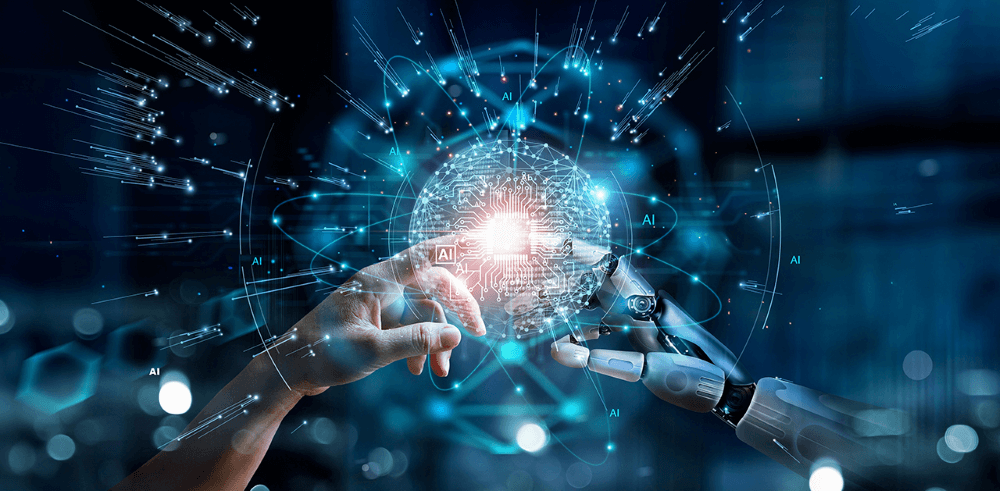Artificial intelligence is no longer a concept confined to sci-fi novels or research labs. It’s here, integrated into everyday tools, systems, and processes—and it’s rapidly transforming how we work. From automating repetitive tasks to enabling smarter decision-making, AI is influencing nearly every sector and reshaping what the future of work looks like.
In this blog, we’ll explore how AI is changing work across industries, the opportunities and challenges it presents, and what professionals and businesses can do to adapt.
A Quiet Revolution in the Workplace
AI has steadily integrated into the workplace over the past few years. Intelligent code assistants, smart testing frameworks, automated operations tools, and AI-enhanced analytics have moved from experimental projects to essential everyday tools. If you've used autocomplete in emails, interacted with a chatbot, or relied on software to categorize data, you've already used AI.
What’s changing now is scale and complexity. AI systems powered by machine learning, natural language processing, and computer vision don’t just support tasks—they shape how problems are solved. With capabilities like predictive modeling and intelligent automation, AI is accelerating innovation and transforming the way we work.
Where AI Is Making an Impact
1. Automation of Routine Tasks
AI excels at handling repetitive, rule-based tasks that don’t require human creativity. These automations reduce manual effort, speed up execution, and lower operational costs.
- In software development: tools assist with code generation, bug detection, and documentation.
- In operations: predictive analytics prevent system failures and reduce downtime.
- In HR and customer service: AI automates scheduling, resume screening, and support triage.
By handling these functions, AI allows teams to focus on high-value, strategic work.
2. Enhancing Human Decision-Making
AI isn’t just about replacing tasks—it’s also about amplifying intelligence. Predictive analytics, recommendation engines, and AI-powered dashboards help professionals make more informed decisions.
- Engineering teams use AI to prioritize bugs based on user impact.
- Marketers rely on AI to analyze campaign performance and customer segmentation.
- Product managers leverage AI dashboards to guide roadmaps based on usage data.
This shift from intuition-based to data-driven decisions is redefining how leadership operates.
3. Redefining Roles and Skills
As AI takes over some tasks, it’s changing the composition of jobs. New roles are emerging (like AI ethicist or prompt engineer), while existing ones are evolving.
For example:
- A technical support analyst might now handle advanced issues, with AI resolving basic tickets.
- An analyst may spend less time preparing data and more time interpreting results.
- New roles such as AI ethicist or machine learning operations (MLOps) engineer are emerging.
AI is also shifting the emphasis toward soft skills like critical thinking, creativity, and emotional intelligence.
4. Creating Entirely New Opportunities
While some fear AI will displace jobs, history shows that technological advancements often lead to job transformation, not elimination. In fact, AI is giving rise to whole new industries and career paths.
- Startups are building AI-native products across finance, healthcare, and logistics.
- Enterprises are hiring specialists in data governance, responsible AI, and model auditing.
- Individual contributors are launching tools, plug-ins, and applications powered by open-source models.
The landscape is full of untapped potential for those willing to explore it.
Challenges and Ethical Considerations
With great power comes great responsibility. As AI spreads through the workforce, several challenges are surfacing:
- Bias and fairness: AI can inherit and amplify societal biases if not trained on diverse, inclusive datasets.
- Transparency: Many AI models are black boxes, making it hard to understand how decisions are made.
- Job displacement: Some roles may phase out as automation takes hold, requiring companies to reskill their workforce.
- Security and privacy: AI systems can introduce vulnerabilities and raise questions about how data is collected and used.
Responsible AI means not just building intelligent systems, but doing so with care, accountability, and foresight.
How to Stay Ahead
In a world where AI is becoming standard, staying relevant means evolving your skills and mindset.
1. Understand AI Fundamentals
Familiarize yourself with how machine learning, neural networks, and large language models (LLMs) work. You don’t need to be an expert, but knowing the basics is essential.
2. Experiment with AI-Powered Tools
Use platforms that integrate AI into daily workflows—whether for code suggestions, automated reporting, intelligent infrastructure, or testing.
3. Sharpen Core Strengths
Focus on what AI can’t replace: systems thinking, critical analysis, ethical judgment, and communication.
4. Invest in Lifelong Learning
Take online courses, attend conferences, and dive into hands-on projects that stretch your capabilities and help you stay ahead of the curve.
Looking Ahead
AI is not about replacing people—it’s about amplifying what they can do. It’s changing how we approach challenges, build products, and make decisions.
By embracing AI’s potential—and acknowledging its limitations—we can build a workplace that’s not just more efficient, but also more human. Whether you're writing algorithms, managing infrastructure, or analyzing systems, the future of work is already here. And AI is at the center of it.

